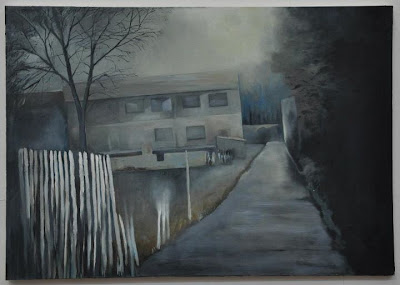 |
| Frank Stella, Delta, 1958 |
My painting is based on the fact that only what can be seen there is there. It really is an object... If the painting were lean enough, accurate enough or right enough, you would just be able to look at it. All I want anyone to get out of my paintings, and all I ever get out of them, is the fact that you can see the whole idea without any confusion...What you see is what you see.
Frank Stella in Glaser, B. and Lippard, L. R. (1966) "Questions to Stella and Judd", Art News, September, (discussion originally broadcast on WBAI-FM, New York, February 1964 as "New Nihilism or New Art?"), reprinted in Battcock, Gregory ed. (1968) Minimal Art: A Critical Anthology, London: Studio Vista, pp157-8
 |
| Frank Stella, Sidney Guberman, 1964 |
 |
| Frank Stella, Les Indes Galantes, 1962 |
 |
| Frank Stella, Basra Gate I, 1968 |
 |
| Frank Stella, Gkinne II, 1972 |
I wanted to get the paint out of the can and onto the canvas. I knew a wise guy who used to make fun of my painting, but he didn't like the Abstract Expressionists either. He said they would be good painters if they could only keep the paint as good as it is in the can. And that's what I tried to do. I tried to keep the paint as good as it was in the can.
Frank Stella in Glaser, B, and Lippard, L. R. (1966) "Questions to Stella and Judd", Art News, September, (discussion originally broadcast on WBAI-FM, New York, February 1964 as "New Nihilism or New Art?"), reprinted in Battcock, Gregory ed. (1968) Minimal Art: A Critical Anthology, London: Studio Vista, p157.



















































